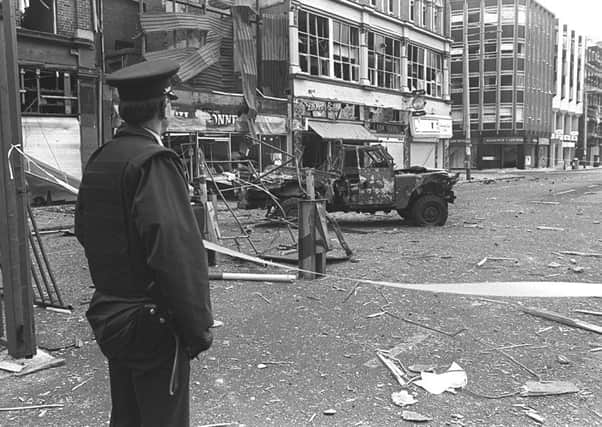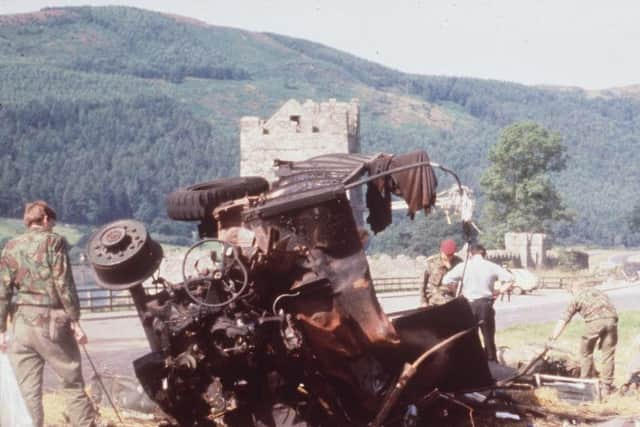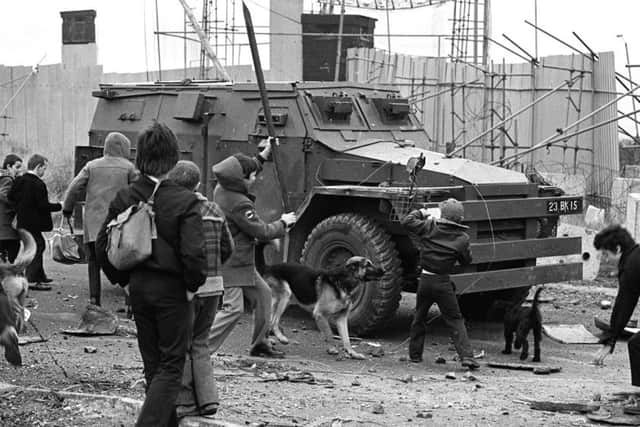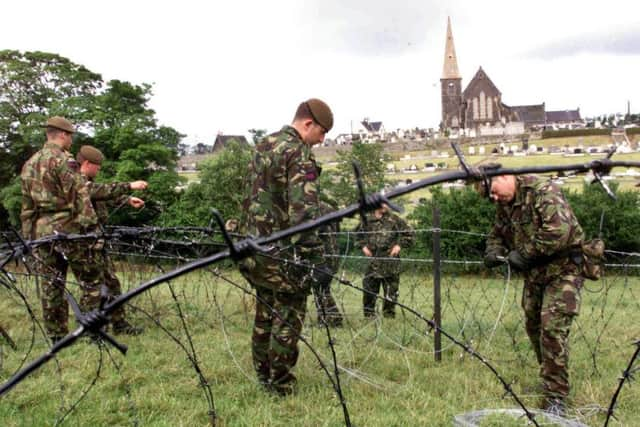Report calls for soldiers not to be pursued over Troubles crimes


The adoption of the proposal by the defence committee comes after a number of former security forces members were recently charged with historic offences.
Its conclusion states that “expert witnesses agreed that the UK Parliament has it entirely within its power to enact such a statute”.
Advertisement
Hide AdAdvertisement
Hide AdWhilst it is beyond the strict remit of the committee, the report also states that the government should extend this policy to ex-RUC officers too.


The report prepared by the committee suggests that ex-personnel be shielded from legal action over things which happened “between almost 20 and almost 50 years ago”.
The committee said it had received evidence from legal experts that a limitation for only security force members could leave the UK open to challenge that it was legislating for “state impunity”.
The committee did not recommend that the statute should cover all Troubles incidents, and said that this would “be a matter for the next government to decide”.
Advertisement
Hide AdAdvertisement
Hide AdThe report stated: “It is clear from the experience of these legacy investigations that, unless a decision is taken to draw a line under all Troubles-related cases, without exception, they will continue to grind on for many years to come, up to half-a-century after the incidents concerned.”


It further notes that under the terms of Northern Ireland (Sentences) Act, 1998, “terrorists who committed multiple murders during the Troubles face, in practice, no more than a two-year sentence, even if successfully prosecuted”.
The chairman of the defence committee, Dr Julian Lewis MP, said: “To subject former soldiers to legal pursuit under the current arrangements is wholly oppressive and a denial of natural justice.
“The UK Parliament has it entirely within its power to enact a Statute of Limitations in this matter – which is the only way to avoid another IHAT debacle.”
Advertisement
Hide AdAdvertisement
Hide AdIHAT (standing for Iraq Historic Allegations Team) is a reference to an inquiry into alleged abuses carried out by the military related to the UK invasion of Iraq.


The committee is made up of five Conservatives (including its chairman), four Labour members, one SNP member and the DUP’s Gavin Robinson.
Along with a statute of limitations the committee called for a truth recovery mechanism to aid bereaved families.